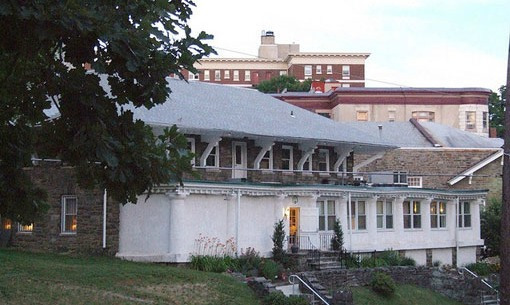This was supposed to be the Commodore Barry Arts and Cultural Center’s big year.
The Mount Airy-based center makes most of its money from hosting events—from ceili dances and Irish language courses to big banquets and wedding receptions that typically fill the center’s spacious ballroom to capacity. For 2020, the calendar was so crowded with paying events, there was a waiting list.
And then in mid-March the pandemic hit, and the center had to close.
“In January, we were preparing the budget. We were booked solid the entire year,” says Center board member and vice president Lisa Maloney. “This has been years in the making. We really thought we were on a positive plane. We had a lot of different events coming in, and we were very excited—and then Covid came in. We now have no income coming in at all. We don’t have big expenditures, but we do have the monthly costs of running the building.”
That monthly cost amounts to $9,000 to $10,000, including taxes, mortgage payment, utilities, and upkeep of facilities and equipment subject to city inspections. In the meantime, some capital improvement projects planned for 2020 have been postponed.
Because of the good run of events and savings up through mid-March, the Center has sufficient funds to last through the end of September. Recently, the Center has also been able to negotiate an agreement with the city greatly reducing their taxes—also a boon. However, regardless of the Center’s previous good fortune, after September, the well runs dry.
The Center, a 501c3 non-profit, now requires an estimated $30,000 to get through the rest of the year through January 1—at which time, Maloney and Center president Sean McMenamin hope, some of the Covid-related restrictions will be lifted and they can host some badly needed money-making events. To get to that point, the Center has launched a fund drive to help fill the gap.
The club—commonly known as the Irish Center—dates back in one form or another to the late 1950s. The first event was the Mayo Ball on November 1, 1958. (The building itself was constructed in 1905.) The Center has a long and storied history of service to the Irish and Irish-American community of the Delaware Valley. Preserving it is essential, explains McMenamin. “We want to preserve the legacy of our ancestors who bought this place,” he says. “We want to come back bigger and better.”
Contributions are already coming in—some big, some quite small. McMenamin points in particular to a donation of $10—which was all the donor could afford. “It was very touching,” he says. “Ten dollars really meant a lot to him.”
Additionally, says, Maloney, the Center is also in a position to begin thinking about applying for grants.
If you want to help out—of course you do—visit this web page: https://theirishcenter.org/2020-fundraising/
Also bear in mind, all donations are tax deductible—and remember that if you get a match from your employer, now’s a good time to ask for it. And be generous. That number, $30,000, may be the goal. But, McMenamin laughs, “We’ll take more.”

